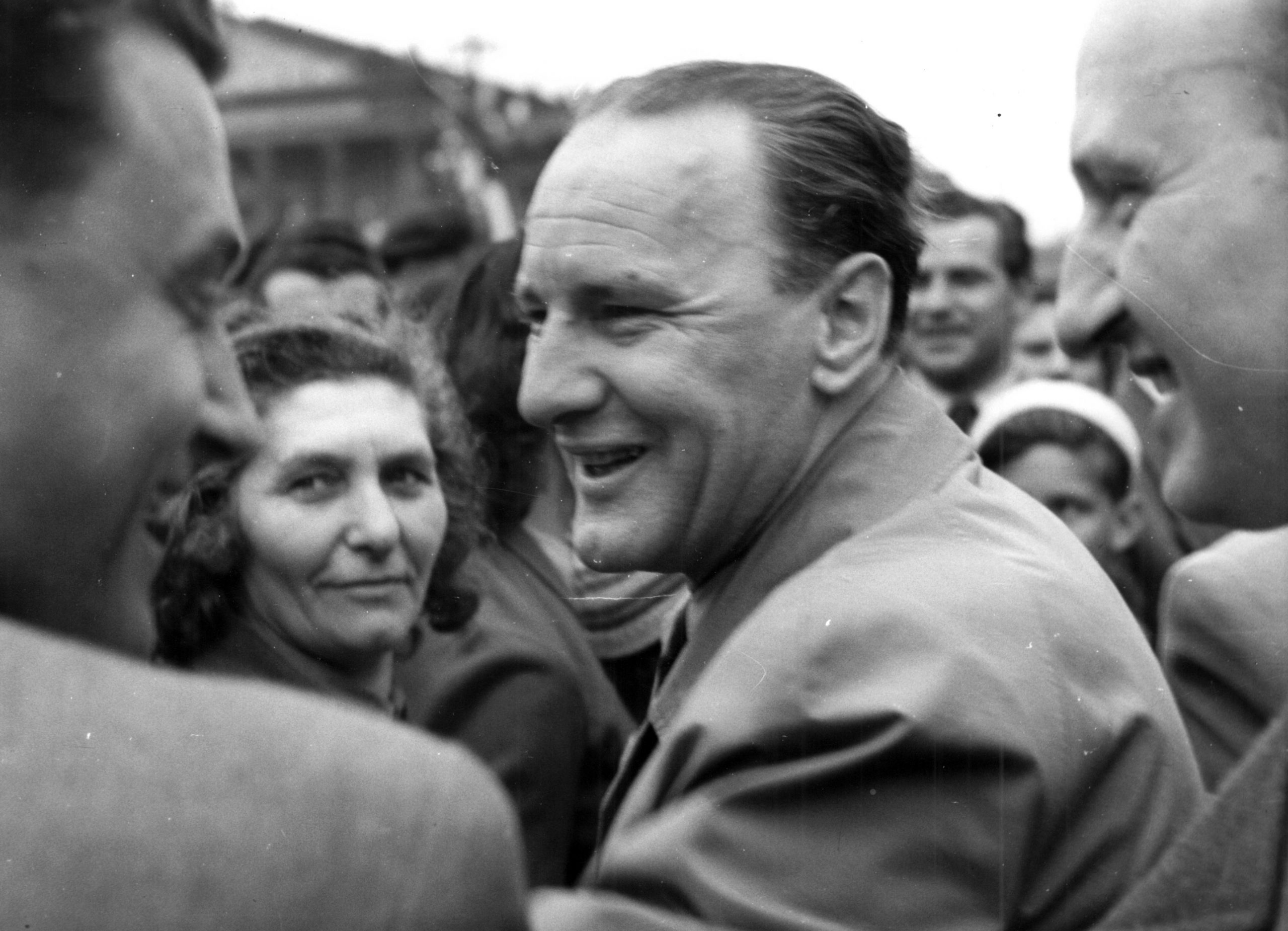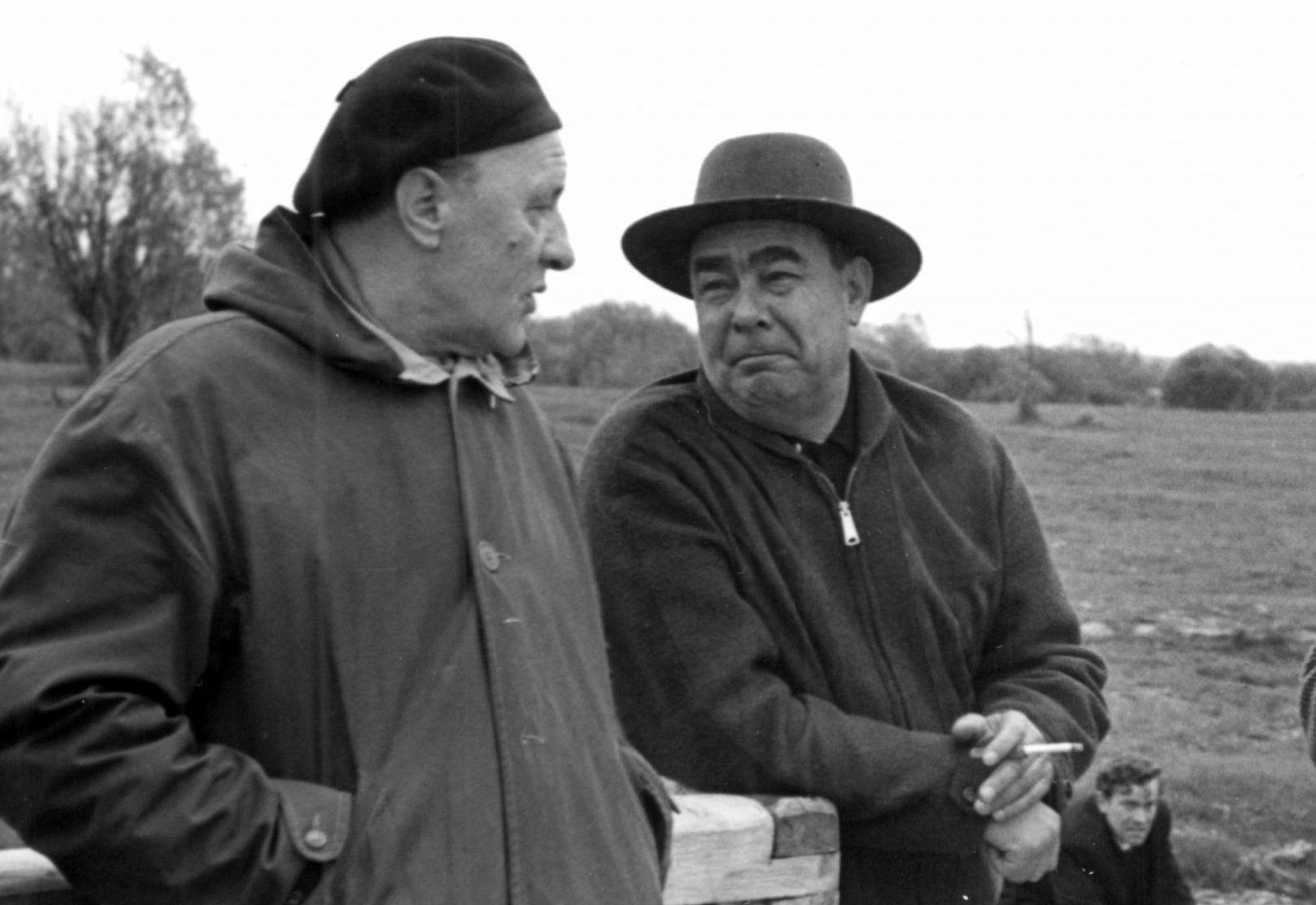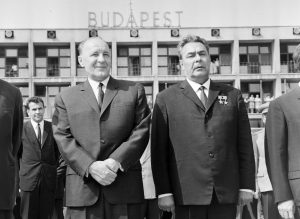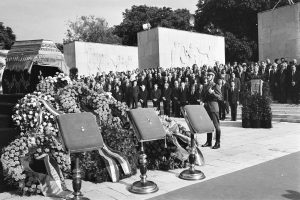
While they are remembered as heroes today, Hungarian freedom fighters who were forced to flee their homeland were labelled traitors and rebels by the General Secretary.Continue reading

It was 35 years ago this May that then state party, the Hungarian Socialist Workers’ Party (MSZMP), held an extraordinary meeting at which János Kádár, who had been in power for 32 years, was surprisingly replaced. The country was already in a desperate economic situation, things could not go on as before, and the winds of change were blowing through Hungary. The news portal Index spoke to Gábor Balogh, chief historian of the House of Terror Museum, about the reasons that led to the endgame.

Photo: Foretepan Bojár Sándor
By 1988, international changes were already being felt, and sooner or later they would have an impact on us, too. Kádár was replaced and a weightless, previously non-existent post was created for him, and he was transformed from the all-powerful General Secretary to the President of the MSZMP. This position had virtually no function within the party leadership.
According to Gábor Balogh, it must be assumed that Kádár was already living in a world of his own making at the time, oblivious to the serious socio-economic problems. In fact, in his April 1988 TV interview, the party leader himself stated that “in Hungary, there is no crisis in political and social terms!”

Photo: Fortepan Bojár Sándor
All this was being said at a time when the country was almost bankrupt and Hungary had joined the IMF in order to somehow survive on the loans taken out from it.
According to the historian, the voices of discontent within the party would not have been enough in themselves to make Kádár resign. Hungarian politics was still being directed from Moscow. In early 1988, Kádár met Vladimir Kryuchkov in Budapest. He had been sent to the Hungarian capital by Gorbachev himself, the leader of the then Soviet Communist Party, because Kryuchkov had been working at the Soviet embassy in Budapest since the 1956 revolution, knew Kádár personally, and had worked for a long time in the Soviet secret service, the KGB, which he became head of in October 1988.
It was after such a behind-the-scenes meetings that it became clear to Kádár that his time was up. It was no coincidence that under Soviet pressure – the Soviet Union was headed by a young Mikhail Gorbachev, a year before the KGB leader’s visit, the old-fashioned György Lázár was replaced as prime minister by one of the party’s heroes, Károly Grósz.
The expert pointed out that although Kádár was responsible for the consolidation after 1956, it came at a heavy price. In the years immediately after the revolution, the Hungarian economy was already performing so poorly that the only way to move forward was through loans, mostly for goods, from Romania and the Soviet Union. In the 1960s, Hungary already had large loans, including those from Western lenders.
The Kádár regime had achieved as much compared to the Rákosi period that at least basic foodstuffs were now accessible, and shortages were not as alarming as in the 1950s.
The historian asked the question: did Kádár himself really want to make this speech, which lasted more than an hour, to the party leadership two months before his death? Balogh pointed out that Miklós Németh, who was prime minister at the time of the regime change, suggested in his memoirs that it was probably organized by his successor, Károly Grósz.

The Funeral of János Kádár in 1989. Photo: Foretpan Károly Vimola
In his opinion, Grósz wanted Kádár to take full responsibility for the crimes of 1956, and to remove this dark shadow from the party. The speech itself conveyed the fluttering thoughts of an elderly, dishevelled man with dementia to a stunned audience, but it certainly did not achieve what Grósz wanted it to achieve.
Hungarian speakers may want to listen to the whole discussion through the Youtube link provided above.
Via Index.hu. Photos: Fortepan